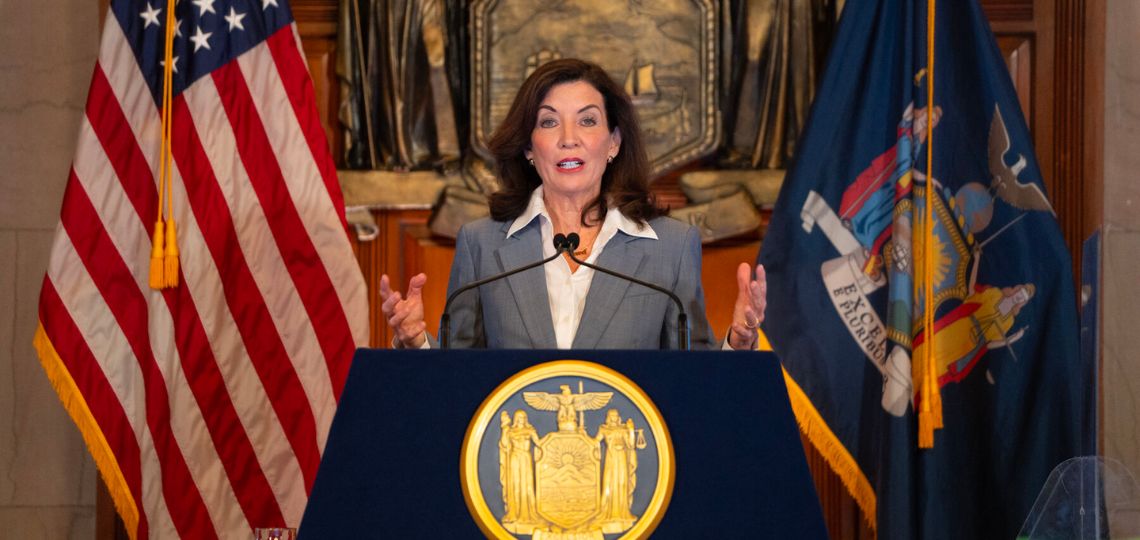New York State, following California, has officially begun the process of banning the sale of new passenger vehicles with emissions by 2035, Governor Kathy Hochul announced Thursday.
The official had already set this goal last year but had to wait for legal reasons for California to pass its own law, which was done in August, she explained at a press conference.
It can now move on to the next stage and has asked its departments to prepare the appropriate texts, including intermediate targets for 2026 (35% of sales) and 2030 (68% of sales) before reaching 100% of sales in 2035.
By that date, all city cars, sedans, SUVs and pickups carrying passengers will have to be “zero emission”, i.e. electric, plug-in hybrid or hydrogen vehicles. The text would effectively ban gasoline and diesel vehicles.
At the same time, the regulations are expected to progressively tighten the emission standards for internal combustion engine vehicles.
“We have intermediate milestones to reach, to show that we are on the right track,” Hochul said.
In recent years, many countries have been trying to limit pollution from the automotive sector.
The United Kingdom, Singapore and Israel have committed to ending sales of new gasoline and diesel vehicles by 2030, and Norway has made a commitment for 2025.
U.S. President Joe Biden, for his part, signed an executive order in the summer of 2021 setting a goal that by 2030 half of all cars sold in the United States should be zero-emission.
Sales of electric-only vehicles in the country, which has long lagged behind Europe in this segment, have surged in recent months and in the second quarter accounted for 5.6% of vehicle sales, according to Cox Automotive.






